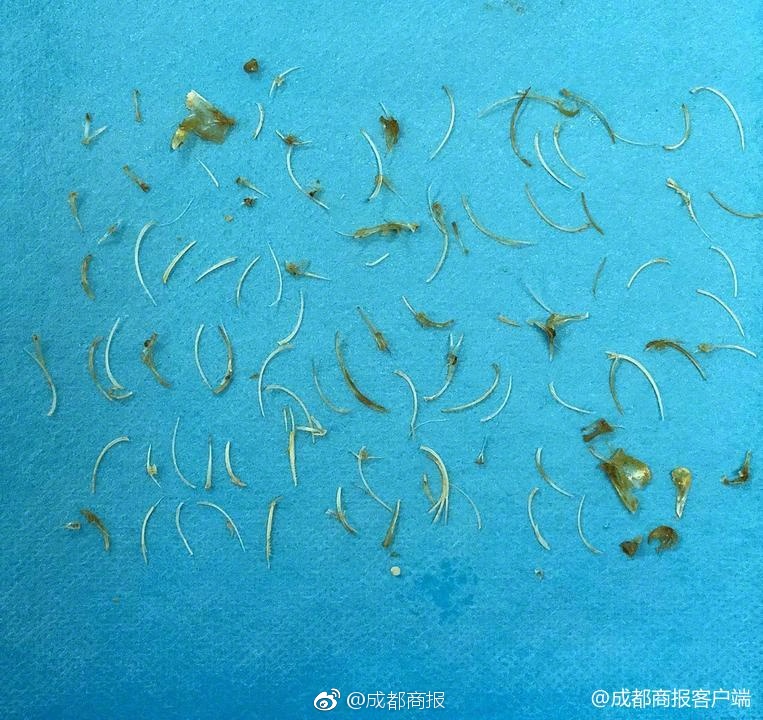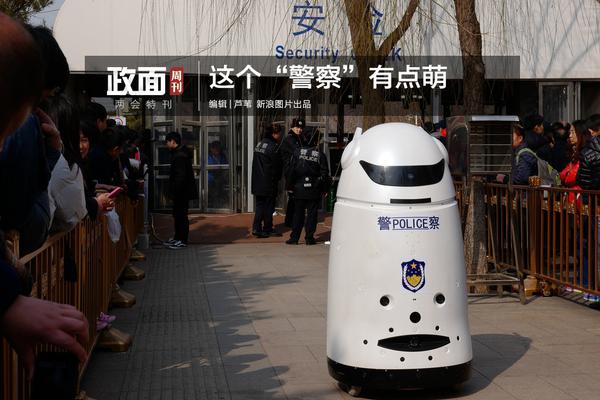
1. The five functions of the operating system are processor management, memory management, device management, file management and job management. Processor management The most basic function of processor management is to process interrupt events. After configuring the operating system, various events can be processed.
2. The main function of the computer operating system is process management, and its work is mainly process scheduling. In the case of a single user and a single taskNext, the processor is only monopolized by one user's task, and the process management work is very simple.
3. Operating System (abbreviation: OS) is a group of interrelated system software programs that supervise and control computer operation, use and run hardware, software resources and provide public services to organize user interaction.
4. Five major management functions of the operating system: (1) Job management: including tasks, interface management, human-computer interaction, graphical interface, voice control and virtual reality, etc. ( 2) File management: also known as information management. ( 3) Storage management: The essence is the management of storage "space", which mainly refers to the management of the main memory.
Any information system has five basic functions, namely: information collection and recording (input); information storage; information processing; information transmission; information output .
According to the functional introduction of the information system, the information system has five basic functions: input, storage, processing, output and control. Different functions have different functions, such as input function: the input function of the information system is determined by the purpose to be achieved by the system, the ability of the system and the permission of the information environment.
Five basic functions of the information system: input, storage, processing, output and control. Input function: The input function of the information system is determined by the purpose to be achieved by the system, the ability of the system and the permission of the information environment.Storage function: Storage function refers to the ability of the system to store various information and data. Mainly including: statistical functions.
The operating system has five functions: processor management: mainly controls and manages the work of the CPU. Storage management: mainly allocate and manage memory. Device management: mainly manage basic input and output devices. File management: responsible for the organization, storage, operation and protection of computer files.
The functions of the computer operating system include: processor management, memory management, device management, file management, job management and other functional modules. Processor management. The most basic function of processor management is to handle interrupt events. The processor can only detect interrupt events and generate interrupts and cannot process them.
The main function of the computer operating system is process management, and its main work is process scheduling. In the case of a single user and a single task, the processor is only monopolized by one user's task, and the work of process management is very simple.
The main functions of the operating system are process and processor management, job management, storage management, device management and file management, as follows: process and processor management. Because the execution of the program must rely on the processor, only one program flow can be processed and executed at any time. Homework management.
I) Processor management The most basic function of processor management is to handle interrupt events. The processor can only detect interrupt events and generate interrupts, and cannot handle these interrupt events. After configuring the operating system, all types of events can be handled.Another function of processor management is processor scheduling.
Five management functions of the operating system: job management: including tasks, interface management, human-computer interaction, graphical interface, voice control and virtual reality, etc. File management: also known as information management. Storage management: The essence is the management of storage "space", which mainly refers to the management of the main memory.

The storage management function of the operating system is to manage memory resources. It mainly realizes memory allocation and recovery, storage protection and memory expansion. The device management of the device management operating system is responsible for allocating and recycling external devices, and controlling external devices to operate according to the requirements of user programs.
The functions of the computer operating system include: processor management, memory management, device management, file management, job management and other functional modules. Processor management. The most basic function of processor management is to handle interrupt events. The processor can only detect interrupt events and generate interrupts and cannot process them.
The five functions of the operating system are processor management, memory management, device management, file management and job management.Processor management The most basic function of processor management is to process interrupt events. After configuring the operating system, various events can be processed.
100 free bonus casino no deposit GCash-APP, download it now, new users will receive a novice gift pack.
1. The five functions of the operating system are processor management, memory management, device management, file management and job management. Processor management The most basic function of processor management is to process interrupt events. After configuring the operating system, various events can be processed.
2. The main function of the computer operating system is process management, and its work is mainly process scheduling. In the case of a single user and a single taskNext, the processor is only monopolized by one user's task, and the process management work is very simple.
3. Operating System (abbreviation: OS) is a group of interrelated system software programs that supervise and control computer operation, use and run hardware, software resources and provide public services to organize user interaction.
4. Five major management functions of the operating system: (1) Job management: including tasks, interface management, human-computer interaction, graphical interface, voice control and virtual reality, etc. ( 2) File management: also known as information management. ( 3) Storage management: The essence is the management of storage "space", which mainly refers to the management of the main memory.
Any information system has five basic functions, namely: information collection and recording (input); information storage; information processing; information transmission; information output .
According to the functional introduction of the information system, the information system has five basic functions: input, storage, processing, output and control. Different functions have different functions, such as input function: the input function of the information system is determined by the purpose to be achieved by the system, the ability of the system and the permission of the information environment.
Five basic functions of the information system: input, storage, processing, output and control. Input function: The input function of the information system is determined by the purpose to be achieved by the system, the ability of the system and the permission of the information environment.Storage function: Storage function refers to the ability of the system to store various information and data. Mainly including: statistical functions.
The operating system has five functions: processor management: mainly controls and manages the work of the CPU. Storage management: mainly allocate and manage memory. Device management: mainly manage basic input and output devices. File management: responsible for the organization, storage, operation and protection of computer files.
The functions of the computer operating system include: processor management, memory management, device management, file management, job management and other functional modules. Processor management. The most basic function of processor management is to handle interrupt events. The processor can only detect interrupt events and generate interrupts and cannot process them.
The main function of the computer operating system is process management, and its main work is process scheduling. In the case of a single user and a single task, the processor is only monopolized by one user's task, and the work of process management is very simple.
The main functions of the operating system are process and processor management, job management, storage management, device management and file management, as follows: process and processor management. Because the execution of the program must rely on the processor, only one program flow can be processed and executed at any time. Homework management.
I) Processor management The most basic function of processor management is to handle interrupt events. The processor can only detect interrupt events and generate interrupts, and cannot handle these interrupt events. After configuring the operating system, all types of events can be handled.Another function of processor management is processor scheduling.
Five management functions of the operating system: job management: including tasks, interface management, human-computer interaction, graphical interface, voice control and virtual reality, etc. File management: also known as information management. Storage management: The essence is the management of storage "space", which mainly refers to the management of the main memory.

The storage management function of the operating system is to manage memory resources. It mainly realizes memory allocation and recovery, storage protection and memory expansion. The device management of the device management operating system is responsible for allocating and recycling external devices, and controlling external devices to operate according to the requirements of user programs.
The functions of the computer operating system include: processor management, memory management, device management, file management, job management and other functional modules. Processor management. The most basic function of processor management is to handle interrupt events. The processor can only detect interrupt events and generate interrupts and cannot process them.
The five functions of the operating system are processor management, memory management, device management, file management and job management.Processor management The most basic function of processor management is to process interrupt events. After configuring the operating system, various events can be processed.
Hearthstone arena deck Builder
author: 2025-02-10 15:52UEFA Champions League standings
author: 2025-02-10 16:29 DigiPlus stock
DigiPlus stock
691.82MB
Check UEFA Champions League live
UEFA Champions League live
646.42MB
Check UEFA Europa League
UEFA Europa League
732.82MB
Check Casino Plus free 100
Casino Plus free 100
499.89MB
Check Casino redeem
Casino redeem
836.77MB
Check Walletinvestor digi plus
Walletinvestor digi plus
655.31MB
Check Hearthstone Arena class tier list 2024
Hearthstone Arena class tier list 2024
623.61MB
Check European Cup live
European Cup live
149.92MB
Check 100 free bonus casino no deposit GCash
100 free bonus casino no deposit GCash
145.38MB
Check UEFA Champions League live streaming free
UEFA Champions League live streaming free
288.48MB
Check UEFA Champions League standings
UEFA Champions League standings
432.43MB
Check Hearthstone arena class win rates reddit
Hearthstone arena class win rates reddit
712.16MB
Check bingo plus update today Philippines
bingo plus update today Philippines
994.71MB
Check Champions League
Champions League
422.28MB
Check Champions League
Champions League
372.34MB
Check Arena plus APK
Arena plus APK
336.65MB
Check European Cup live
European Cup live
337.54MB
Check Bingo Plus stock
Bingo Plus stock
274.95MB
Check UEFA TV
UEFA TV
954.19MB
Check Casino Plus login register
Casino Plus login register
555.82MB
Check Casino Plus
Casino Plus
973.79MB
Check Casino Plus login register
Casino Plus login register
467.63MB
Check bingo plus update today
bingo plus update today
315.94MB
Check 100 free bonus casino no deposit GCash
100 free bonus casino no deposit GCash
497.68MB
Check Casino Plus GCash login
Casino Plus GCash login
176.66MB
Check Casino Plus app
Casino Plus app
982.32MB
Check 100 free bonus casino no deposit GCash
100 free bonus casino no deposit GCash
322.39MB
Check bingo plus update today Philippines
bingo plus update today Philippines
411.18MB
Check Casino Plus login register
Casino Plus login register
988.75MB
Check Hearthstone arena
Hearthstone arena
519.35MB
Check Casino Plus
Casino Plus
972.76MB
Check Casino Plus app
Casino Plus app
139.13MB
Check Hearthstone arena class win rates reddit
Hearthstone arena class win rates reddit
136.66MB
Check Hearthstone arena
Hearthstone arena
633.62MB
Check Hearthstone Wild Decks
Hearthstone Wild Decks
157.41MB
Check Bingo Plus
Bingo Plus
215.64MB
Check
Scan to install
100 free bonus casino no deposit GCash to discover more
Netizen comments More
2242 Arena plus APK
2025-02-10 15:47 recommend
1508 bingo plus update today
2025-02-10 15:39 recommend
2126 Casino Plus free 100
2025-02-10 15:27 recommend
2421 Casino Plus login register
2025-02-10 15:27 recommend
1632 App to watch Champions League live free
2025-02-10 14:49 recommend